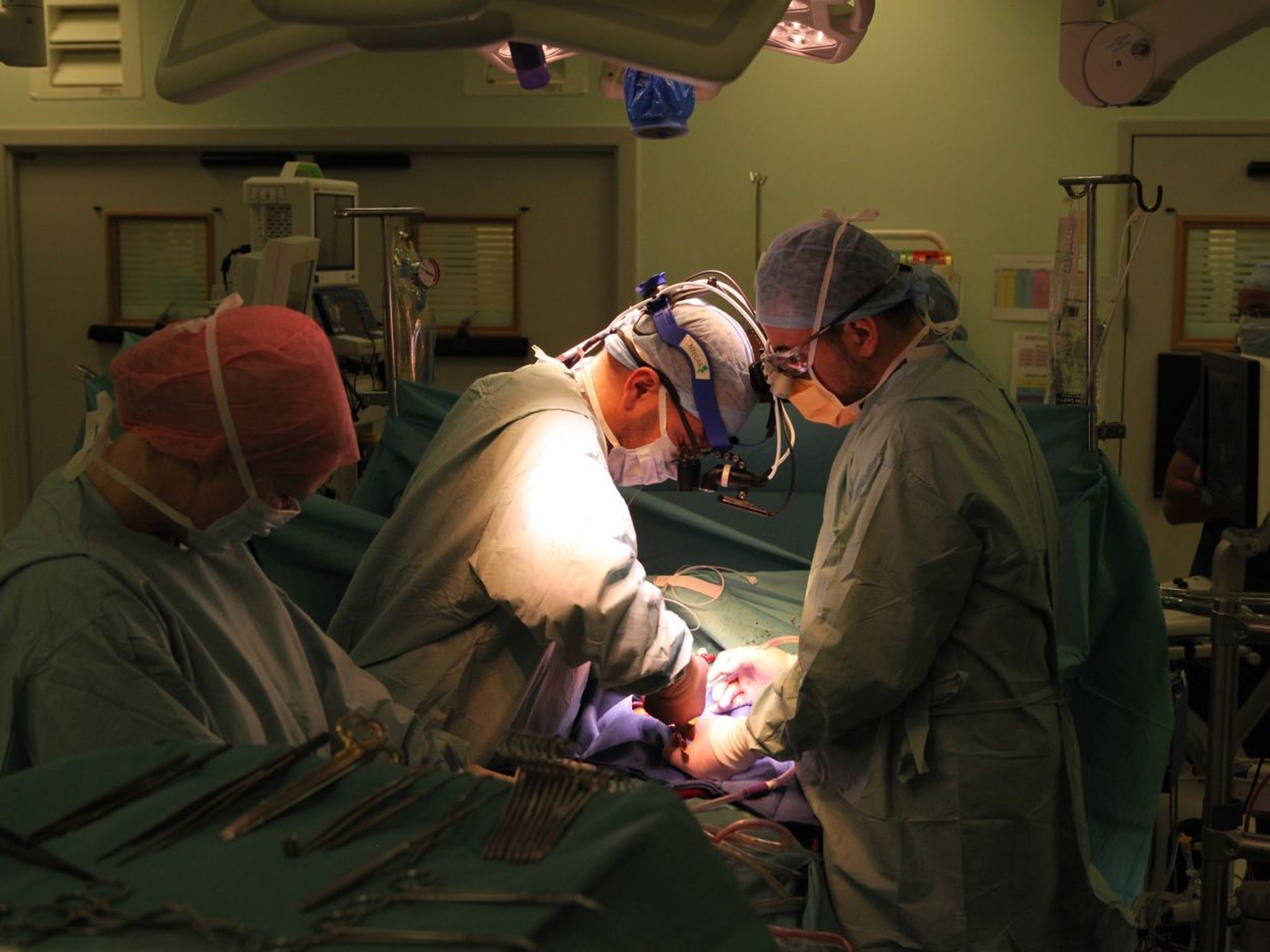How a 'unique' ethics committee wrestles with dilemmas of life and death at Great Ormond Street Hospital
The Clinical Ethics Committee allows parents and doctors to discuss issues caused by advances in modern medicine

Your support helps us to tell the story
From reproductive rights to climate change to Big Tech, The Independent is on the ground when the story is developing. Whether it's investigating the financials of Elon Musk's pro-Trump PAC or producing our latest documentary, 'The A Word', which shines a light on the American women fighting for reproductive rights, we know how important it is to parse out the facts from the messaging.
At such a critical moment in US history, we need reporters on the ground. Your donation allows us to keep sending journalists to speak to both sides of the story.
The Independent is trusted by Americans across the entire political spectrum. And unlike many other quality news outlets, we choose not to lock Americans out of our reporting and analysis with paywalls. We believe quality journalism should be available to everyone, paid for by those who can afford it.
Your support makes all the difference.A sick child is nearing the end of their life. Treatment options have been exhausted and all that remains is pain and distress in their final days on an intensive care ward. The medical team wants to withdraw treatment, discuss end-of-life care and prepare the family for death, but the parents want to fight on.
Few parents will ever have to face this awful decision or many of the other terrible dilemmas created by modern medicine’s ability to keep the critically ill alive for longer in intensive care, but at Great Ormond Street Hospital (GOSH) they will at least be supported by a “unique” ethics committee dedicated to helping doctors and families discuss their concerns.
“We are using machines to support children who would have died 10 years ago,” said Dr Joe Brierley, an intensive care consultant at GOSH. “But because of that, death is becoming increasingly technological, leading us to ask just because we can do it, should we do it?”
Dr Brierley is the vice-chair of GOSH’s Clinical Ethics Committee, and along with a multi-disciplinary panel of medical experts, academics, religious representatives and lay people, he wrestles with the ethics of life and death in an age of rapidly changing paediatric medicine.
The committee was set up in the late 1990s in response to the “unique nature” of GOSH and the cutting-edge care it offers, but in recent years, thanks to funding from the hospital’s charitable arm, it has expanded its role to provide on-call ethical guidance for critical care and to consider the ethics of using experimental new treatments.
“At GOSH we are at the cutting edge of new techniques and treatments, but at the same time we have to ask ourselves: is being able to offer a treatment the same as whether or not we should offer it,” said Dr Brierley.
The committee he chairs meets monthly and discusses cases that are referred to it by clinicians from across the hospital. Where possible it seeks input from parents and even young patients, but also meets at short notice for critical cases. “We are not a decision-making body; that responsibility rests with the clinicians alongside patients and their families. What we are is a space to give clinicians and families a place to discuss their concerns.”
Ellen Schroder, co-chair and lay member of the committee, whose daughter was treated at GOSH, said: “Generally we are trying to help decide whether to continue treating a child or whether to stop. Medical science has moved so far so we need to look at the burden on the child, versus the benefit of more treatment. We also talk about possible access to lawyers if there’s a fundamental disagreement.”
A handful of cases a year from GOSH do end up in the courts when a family and doctors are unable to agree on the best course of action, but Dr Brierley says the aim of the committee isn’t to avoid costly court battles or to save the NHS money. “It’s about making the right decision for the right reasons,” he said.
He added: “Parents can often feel they need to fight on beyond a point that a doctor will. They have often had to fight to get to GOSH, and society and the media often present that as their role, but what we do is try to defuse that and listen to the family. That is where ethics and mediation come together.”
Other hospitals across the country are now studying the committee, which offers guidance on broader ethical challenges. “For example, we help doctors to decide if they are doing the right thing by putting a child on a machine to keep them alive for a transplant that may not happen if they are what we call a marginal recipient,” said Dr Brierley.
The committee’s work isn’t all about “end of life” care though, and increasingly it is called in to meet with doctors and families to discuss “compassion and innovative” therapies. This is where doctors are considering using a cutting-edge but unproven drug or technique as a treatment of “last resort” for a patient who would otherwise die.
In 2010, one such case saw the committee discuss a pioneering cell-supported trachea transplant, the first of its kind in the world. Dr Brierley said cases like this are on the “borderline” between clinical research and “life-saving interventions”, and that, while they are not ready for formal research trials, they allow doctors to offer potentially life-saving new treatments for rare diseases.
To find out more about our charity auction and to make your bid, please visit www.givergy.com/charity/gosh
Join our commenting forum
Join thought-provoking conversations, follow other Independent readers and see their replies
Comments